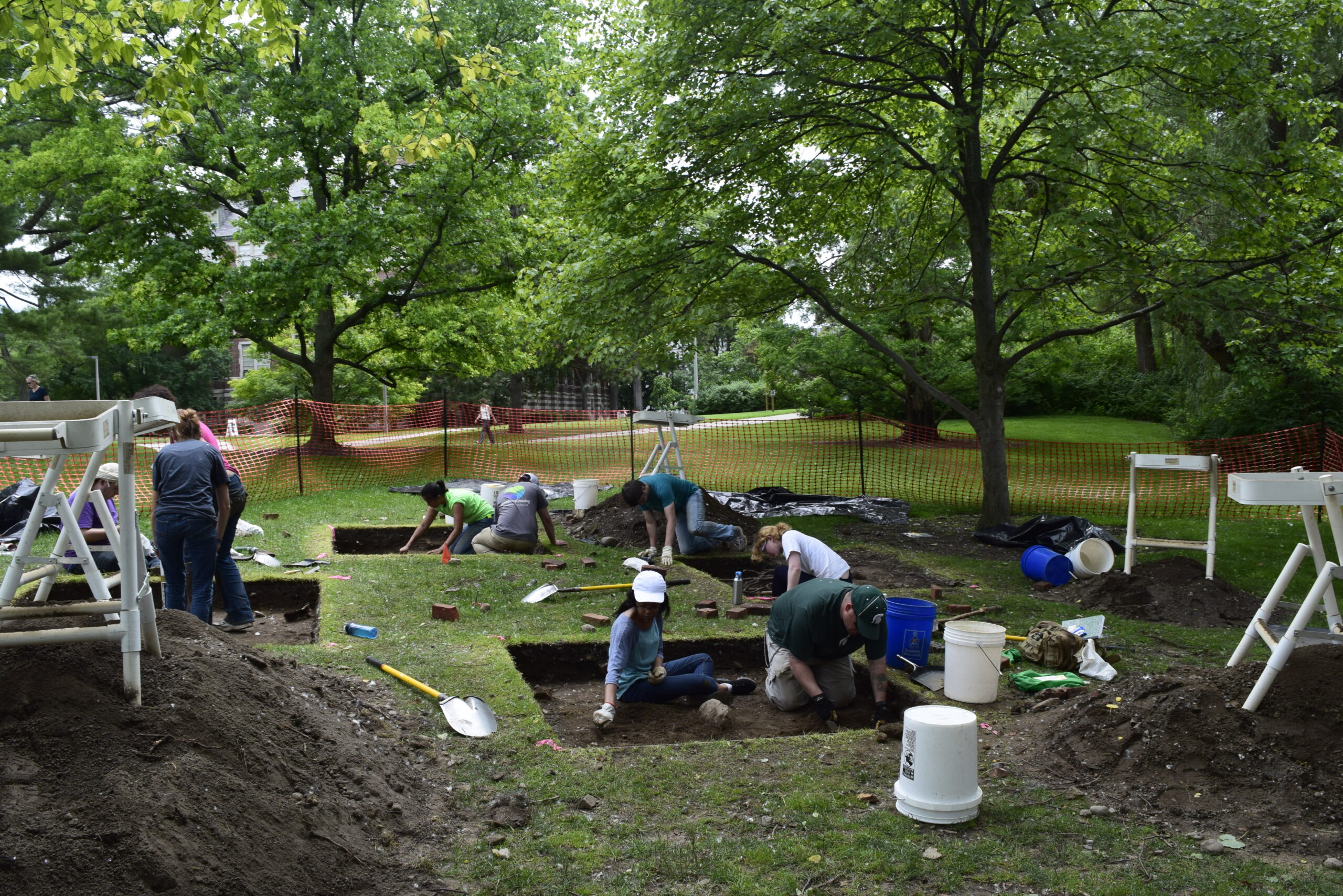-
Outstanding Senior, Becca Albert
The Department of Anthropology is pleased to announce Rebecca K. Albert (aka Becca) as our Outstanding Senior in Anthropology for the class of 2018. Each department in the College of Social Science selects one graduating senior who is the first to walk across the stage at graduation and attend the Outstanding Senior Ball held in […]
-

Dr. Stacey Camp receives S3 Grant
Dr. Stacey Camp, Dr. Lynne Goldstein (Anthropology), and Dr. Leigh Graves Wolf (College of Education) with the Archaeology STEM Camp Pilot Project will use a grant from Science and Society at State (S3) to run a two-day archaeology camp this June for 15 International Baccalaureate (IB) high school students on Michigan State University’s campus. Founded in 1968, […]
-
Alumni & Friends of Archaeology Fund Update
The Alumni and Friends of Archaeology Expendable Fund, established to enhance research and learning of undergraduate and graduate students in the archaeology program through the MSU Department of Anthropology, provided two student awards Spring 2017. This was the inaugural year for the Alumni and Friends of Archaeology Research Enhancement Award. The Enhancement Award was granted […]
-
News from Around the Department
Graduate student and PhD. Candidate Susan Kooiman received the 2016-2017 Moreau Maxwell Scholar Award. This award is given to an Anthropology graduate student for an outstanding research contribution in Anthropology. The award is named in honor of the late Professor Moreau Maxwell, who is internationally recognized for his research contributions in Arctic archaeology. This award […]
-
Adjunct Feature: Dr. Erica Dziedzic
Dr. Erica Dziedzic is an Adjunct Assistant Professor in the Department of Anthropology, who has taught for the department several times. At the young of 8, Erica decided she wanted to become an archaeologist and made it a reality in August of 2016 when she received her doctorate from our department under the guidance of […]